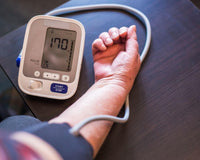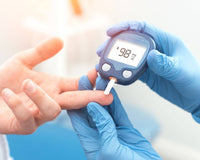Mirtazapine is an antidepressant used to treat major depressive disorder. It can also improve mood and well being. In the following article we discuss the uses, side effects, and dosage of mirtazapine. We also answer the questions what is mirtazapine and how does mirtazapine work.
What Is Mirtazapine?
Mirtazapine is a prescription drug used to treat depression and improve mood and well being. Commonly available brands of mirtazapine include Remeronsoltab and Remeron.
Mirtazapine Uses
Mirtazapine is used to treat depression. In doing so, it can also improve mood and feelings of well-being.
How Does Mirtazapine Work?
Mirtazapine works as an alpha-2 antagonist. It works to increase norepinephrine and serotonin levels within the body while simultaneously blocking postsynaptic serotonergic receptors. In doing so, it improves mood.

Mirtazapine Dosage
Mirtazapine is available as a tablet. It can be taken with or without water or food.
Your dosage recommendations for mirtazapine may vary depending on:
- Your age
- Your condition
- How severe your medication is
- How you react to your first treatment
Adult Dosage for Depression
Initial Dose: 15mg orally once a day at bedtime
Maintenance Dose: 15mg to 45 mg once a day.
Maximum Dose: 45mg a day.
Dosage for Children
Children younger than 18 years old should not take mirtazapine in most cases. However, in rare cases, mirtazapine can be taken by children under the care of a doctor or physician.
Mirtazapine Side Effects
Taking mirtazapine may cause side effects. Some side effects are more common and serious than others.
Common Side Effects
Common side effects of mirtazapine include:
- Dizziness
- Drowsiness
- Lightheadedness
- Increased appetite
- Weight gain
- Dry mouth
- Constipation
If these side effects are mild, they may disappear within a few days. If you have stopped taking your medication and the effects are still present, talk with your doctor or pharmacist.
Serious Side Effects
Other side effects of mirtazapine are more serious. Call your doctor immediately if you are experiencing any of these serious side effects.
Serious side effects of mirtazapine may include:
- Irregular heartbeat
- Severe dizziness
- Fainting
- Eye pain
- Widened pupils
- Swelling of hands
- Swelling of feet
- Confusion
- Shaking/ Tremor
- Changes in vision
- Blurred vision
Disclaimer: Here at Manifest Pharmacy, our goal is to provide you with the most relevant and current information. However, because drugs affect each person differently, we cannot guarantee that this information includes all possible side effects. This information is not a substitute for medical advice. Always discuss possible side effects with a healthcare professional who knows your medical history.
Mirtazapine Warnings
Mirtazapine can cause an increase in suicidal thoughts and may lead to a serious condition called serotonin syndrome.
Mirtazapine Black Box Warning
Mirtazaipne has a black box warning for suicidal thoughts, the most serious warning under the guidelines of the Food and Drug Administration (FDA).
Serotonin Syndrome Warning
Mirtazapine may cause a life-threatening condition known as serotonin syndrome. Symptoms of serotonin syndrome include, but are not limited to agitation, hallucinations, confusion, trouble thinking, coma, coordination problems, and muscle twitching. Consult your doctor immediately if you experience any of these serious symptoms.
Withdrawal Warning
Do not stop taking mirtazapine without first consulting your doctor. Stopping suddenly can cause withdrawal symptoms such as anxiety, agitation, shaking, sweating, vomiting, and nausea. If you stop taking mirtazapine, your doctor will slowly lower your dosage over time.
Mirtazapine Interactions
Mirtazapine may affect how other medications work or increase risk for serious side effects. Keep a list of all products you use and share it with your doctor or pharmacist. Do not stop, start, or change the dosage of any medications without doctor approval.
Some products that may interact with mirtazapine include diet pills, drugs for appetite deficit disorder, apraclonidine, bupropion, buspirone, carbamazepine, deutetrabenazine, and levodopa.
The risk of serotonin syndrome may increase if you take other drugs that include serotonin in conjunction with mirtazapine.
Mirtazapine Uses, Dosage, Side Effects, Warnings, And Interactions Summary
Mirtazapine is a prescription drug used to treat depression. In doing so, it can improve general mood and well-being.
The most common brands of mirtazapine include Remeronsoltab and Remeron. Mirtazapine should not be taken in conjunction with diet pills, appetite deficit disorder medications, and other drugs that can increase your risk for serotonin syndrome.








